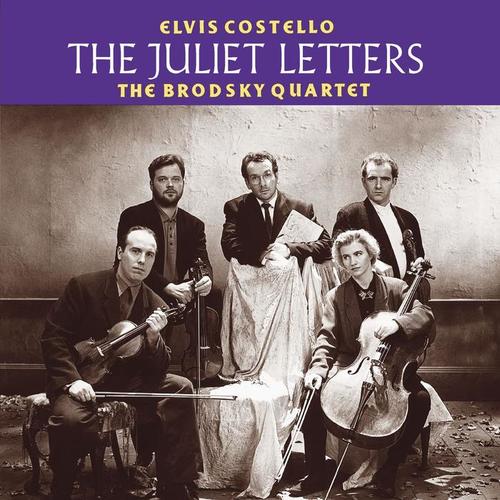
The Juliet Letters
by Stephen Thomas ErlewineLooking back on it, it's remarkable that Warner didn't sue Elvis Costello for making deliberately noncommercial, non-representative records, the way Geffen did with Neil Young in the '80s. After all, it's not just that he made a record as anti-pop as Mighty Like a Rose, it's that he followed it with a full-fledged classical album, The Juliet Letters -- "a song sequence for string quartet and voice," recorded with the Brodsky Quartet. It's inspired by a Verona professor who responded to letters addressed to Juliet, of Romeo and Juliet fame, too. Given this history, it's little wonder that the record didn't storm the charts, but it is remarkable that Warner, even with their reputation for being an artist's label, decided to release it, since this just doesn't fit anywhere -- not within pop (especially in the grunge-saturated 1993) and not within classical, either. Of course, that's precisely what's interesting about the record, and if interesting didn't signify any rewards with Mighty, it does here. This is a distinctive, unusual affair that, at its best, effectively marries chamber music with Beatlesque art pop. And there are a number of moments that work remarkably well on the record, such as "I Almost Had a Weakness" and "Jacksons, Monk and Rowe." True, these are the songs closest to straight-ahead Costello songs, yet they're still nice, small gems, and even if the rest of the record can be a little arch and awkward, it's not hard to admire what Costello and the Brodskys set out to do. And that's the problem with the record -- it's easy to intellectualize, even appreciate, what it intends to be, but it's never compelling enough to return to. More experiment than effective, then.
